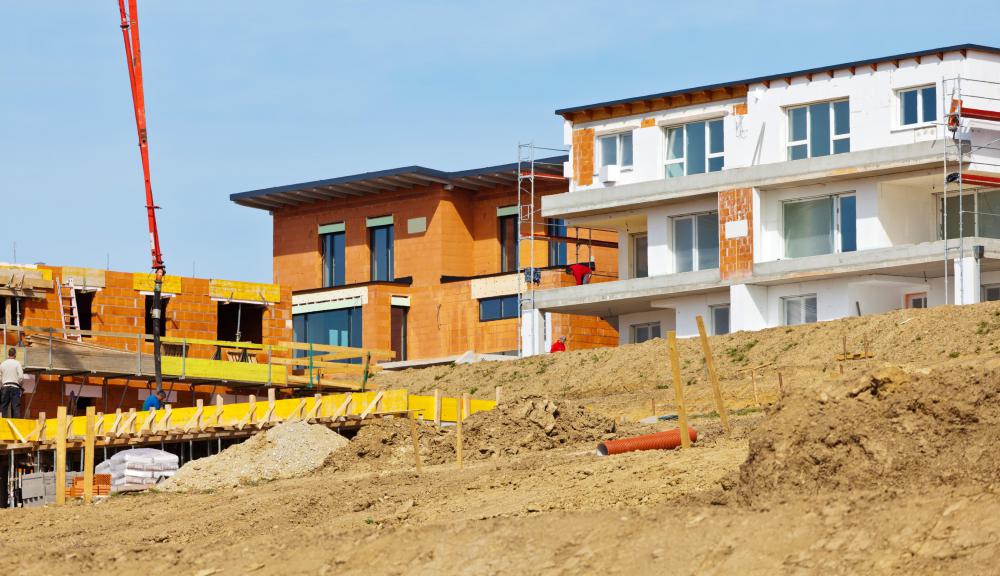At MyLawQuestions, we're committed to delivering accurate, trustworthy information. Our expert-authored content is rigorously fact-checked and sourced from credible authorities. Discover how we uphold the highest standards in providing you with reliable knowledge.
What Is a Declaration of Condominium?
A declaration of condominium is a legal document that proposes the governing rules for the condominium, including statements about an owners' association, the legal description of the condominium, and the nature and scope of the project that the condominium developer wants to build. Some regions refer to it as the declaration of condominium ownership or master of deed. It is often recorded and filed at the Office of Registry of Deeds or similar government agency in the region. The property laws in a region often require the filing of a declaration by the developers of a condominium, and the specific requirements for document preparation and filings are often found in the codes that pertain to condominium law. The declaration is also used as part of selling the condominium development.
Owners of other types of real estate may wish to convert their units into a condominium, or a developer may want to build one from scratch. The laws in most jurisdictions govern the conversion process or a new development, and one of the rules includes recording and filing a declaration of condominium. For example, the owner of a multi-tenant apartment building often cannot decide to turn those apartments into condos without filing a declaration and following the other mandates under the regional statutes that govern the creation and operation of condominiums.

A typical declaration often consists of several pages, full of definitions, descriptions, and rules. There are essential provisions that must be included in compliance with condominium laws, including the legal description of the unit, the purpose of the condominium development, and the identification and description of individual units. Most laws also require descriptions of the common areas and rules associated with the use and maintenance of those areas. In addition to the legal requirements for the contents of the declaration, the condominium developer is free to include any provision it wants. Once a declaration of condominium is recorded and filed, it can be amended by the developer as long as the original declaration includes a provision that explains the process of making amendments.

The laws are designed to protect home owners who are interested in purchasing a unit in the proposed development by giving them as much information as possible to make an informed decision. Prospective condo buyers may find the declaration helpful, especially in cases where nothing is built yet. They can obtain information about the minimum size of each unit and information about the owners' association to which they would belong.
AS FEATURED ON:
AS FEATURED ON:












Discussion Comments
What are some of the most important condo association management rules to be aware of?
We are starting to look at condominiums and will probably be moving into one in the next year or so. Sometimes I am overwhelmed by all of the regulations and association rules.
I understand why many of these are in place, but some of them seem so restrictive and binding. I am wondering what is the best way to know exactly what you are getting in to when it comes to buying a condominium.
We have a real estate agent that we know and trust, but I also want to do my own research and not totally rely on the suggestion of someone else.
My son is a real estate agent and has worked with several condo association management companies. Sometimes it can be frustrating for him working for these companies and trying to keep prospective homeowners interested at the same time.
The condo association bylaws are different for each group, and it is important that future homeowners know up front what is required and allowed.
This is also easier for some people to swallow than others. Even though many people are quite willing to let someone else take care of the property, they aren't ready to completely give up choices that go along with owning a home.
Most of the time the rules and bylaws and for protection and uniformity, and can be a major advantage in many situations.
After years of owning their own home, my parents sold it and moved into a condominium. They were ready to down-size and not have to worry about keeping up such a big place.
They were just a little bit surprised at all of the homeowner association rules they had to abide by. They realized there would be advantages and disadvantages, but I don't think they were quite ready for the condo association rules.
It was kind of hard for them to be told what they could and couldn't do when they had gone so many years being able to live in their home and make changes as they pleased.
They ended up sticking it out because of the convenience, and have made it their home. There were changes and adjustments for everybody, but they do enjoy not doing any more of the yard work.
Post your comments